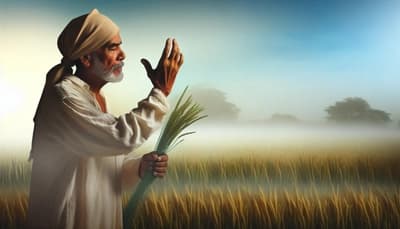Hargrove Julian

Location: Sedona, Arizona
Julian Hargrove is a meditation philosopher and contemplative writer with a lifelong interest in silence, presence, and the art of inner observation.
Experience
Over the past 40 years, Julian has explored a wide range of meditative traditions—from Zen and Advaita to Vipassana and poetic mysticism. His writings invite readers to slow down, reflect deeply, and rediscover simplicity in the present moment.
Education
M.A. in Comparative Philosophy, University of Chicago
Longtime practitioner of Zen and Advaita Vedanta
Posts

The Parable of the Second Arrow: Meeting Pain with Presence
Sometimes, a wound arrives quickly — sharp and true. What follows, however, is often made of our own resistance: the second arrow, invisible yet piercing, woven from judgment and fear. The parable of the second arrow waits in this quiet noticing.

The Man and the Tiger: When Stories Reveal What Is Real
Sometimes a parable lingers longer than an answer. The man and the tiger parable is like this—pointing, not resolving, leaving the listener face to face with their own seeing. Stories move quietly in us, turning illusion and reality in their slow hands.

Analogy of the Mirror: Seeing Change and Stillness in Every Reflection
The analogy of the mirror appears throughout spiritual tales. In the surface, shifting forms come and go. The mirror itself—still, open—waits behind the changes. Sometimes wisdom is a glance, not a lesson.

Fables as Quiet Teachers: Listening to the Stories of Spiritual Traditions
Sometimes a parable lingers where instructions cannot go. Fables used in spiritual traditions invite us to listen, not for answers, but for the hush beneath meaning.

What the Taoist Farmer Saw: Stories That Reveal True Nature
Some stories are not told to teach, but to open a window. Like a slow river curving around quiet stones—these short wisdom tales reveal, then disappear, leaving only a sense of the true nature that was always here.

Teaching from the Taoist Farmer: Lessons Beneath the Surface
Sometimes the simplest stories — a seed, a harvest, a quiet Taoist farmer in the fields — offer meaning that stretches far beyond words.
